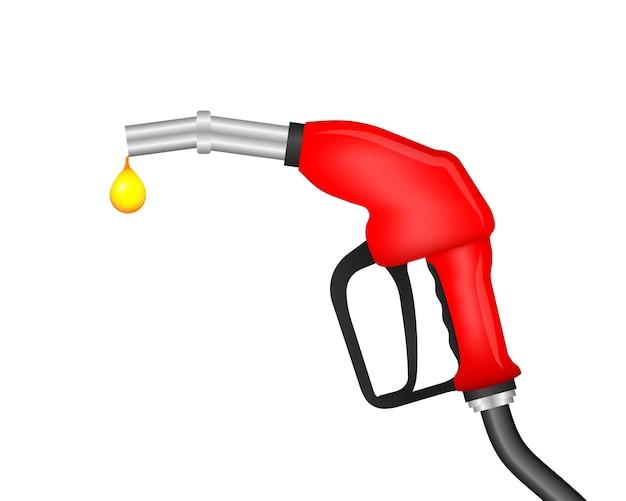Fuel injectors are an essential component of a modern engine, ensuring optimal fuel delivery for efficient combustion. However, if you’ve ever had to replace a faulty injector, you might have been surprised by the steep price tag. In this blog post, we’ll dive into the reasons behind the high cost of injectors and explore the factors that contribute to their value.
From what can damage fuel injectors to the average cost of replacement, we’ll cover all the necessary information you need to know about these crucial engine parts. Additionally, we’ll explore the lifespan of fuel injectors and the consequences of a failed injector. Whether you’re wondering why injectors fail or if it’s possible to clean them, we’ve got you covered.
So, join us as we unravel the mysteries of fuel injectors and shed light on why they can put a dent in your wallet. By the end of this blog post, you’ll have a better understanding of how these components work, their potential issues, and why investing in quality injectors is worth considering.

Why are Injectors So Expensive
The Science Behind the Price Tag
When it comes to injectors, you might wonder why something so small and seemingly simple can cost a pretty penny. Well, let’s dive into the science behind the price tag and uncover the reasons why injectors are so expensive.
Precision Engineering at Its Finest
Injectors are not just your average run-of-the-mill parts; they are the result of precision engineering at its finest. These tiny marvels undergo meticulous design and manufacturing processes to ensure they deliver fuel to your engine with utmost accuracy. From the precisely machined nozzles to the high-pressure pumps and computer-controlled mechanisms, every component is crafted to work in perfect harmony.
Premium Materials for Optimal Performance
To achieve optimal performance and durability, injectors are made using premium materials. Engineered to withstand extreme temperatures, high pressures, and chemical corrosion, these materials ensure the injectors keep delivering fuel reliably. Titanium, stainless steel, and advanced polymers are often used to create a robust and long-lasting product, which inevitably drives up the cost.
The High Stakes of Fuel Efficiency
Keep Your Engine Happy and Your Wallet Happier
One of the main reasons injectors are pricey is the critical role they play in fuel efficiency. These little powerhouses regulate the fuel flow into the engine, ensuring it burns efficiently. By atomizing the fuel into a fine mist, injectors help achieve better combustion and maximize power output. So, while the price might make you cringe, remember that investing in quality injectors can actually save you money at the pump in the long run.
Government Regulations and Emissions Standards
With the push for greener technologies, injectors have had to evolve to meet stricter government regulations and emissions standards. This means incorporating advanced technologies such as direct injection and multiple injection events. These innovations not only contribute to cleaner emissions but also increase the complexity and cost of injectors. So, the next time you curse your expensive injectors, think of them as eco-warriors fighting for a cleaner future.
Demand, Supply, and Market Forces
A Game of Balancing Act
The demand for injectors is exceptionally high, given the number of vehicles on the road and the constant need for replacements. Additionally, advancements in engine technology and the rise of alternative fuels have further fueled the demand for specialized injectors. Balancing this demand with the supply of high-quality injectors requires significant investment in research, development, and cutting-edge manufacturing facilities. Naturally, the costs incurred are passed on to the consumer.
Supply Chain Complexities
The journey from manufacturing facility to your vehicle’s engine is a complex one. Multiple intermediaries, such as wholesalers and retailers, add their own markups along the way. Supply chain logistics, storage costs, and transportation expenses all contribute to the final sticker price of injectors. So, next time you whip out your wallet, remember that you’re not just paying for the product itself, but also supporting an intricate supply chain.
Injectors may put a dent in your bank account, but their high price is justified by the engineering prowess, premium materials, and the ever-increasing demand and regulations they face. So, the next time you start questioning why these tiny components cost so much, remember that they play a crucial role in keeping your engine purring like a content kitten and fueling your automotive adventures.

FAQ: Why are Fuel Injectors so Expensive
What can damage fuel injectors
Fuel injectors can be damaged by a variety of factors including carbon build-up, sediment, rust particles, low-quality fuel, and fuel additives. These contaminants can clog the injector nozzles or affect the injector’s ability to deliver fuel efficiently.
What makes an engine rev faster
Several factors can contribute to a faster-revving engine, including modifications like a performance camshaft, larger throttle body, and aftermarket fuel injectors. These upgrades improve fuel delivery and airflow, allowing for increased engine power and acceleration.
How much does it cost to replace one fuel injector
The cost of replacing a single fuel injector can vary depending on the make and model of your vehicle, but it typically ranges from $150 to $500. This cost includes the price of the injector itself and labor charges.
What is the lifespan of a fuel injector
The lifespan of a fuel injector can vary depending on various factors such as driving conditions, fuel quality, and maintenance. On average, fuel injectors can last anywhere between 50,000 to 100,000 miles. However, proper maintenance and regular cleaning can help prolong their lifespan.
What happens when one injector fails
When one fuel injector fails, it can lead to poor engine performance, reduced fuel efficiency, and rough idling. The affected cylinder may experience misfires, decreased power, and potential damage to the catalytic converter if not addressed promptly.
Why do injectors fail
There are several causes of injector failure, including wear and tear, clogging, electrical issues, and contamination. Over time, the internal components of the injector can wear out, leading to decreased performance and eventual failure.
Can you clean fuel injectors
Yes, fuel injectors can be cleaned. Professional cleaning services, fuel additives, or DIY cleaning kits can help remove deposits and improve injector performance. Regular cleaning maintenance can prevent clogging and help extend the lifespan of the injectors.
How much does an injector cost
The cost of a fuel injector depends on various factors such as the make and model of the vehicle, the type of fuel injector, and whether it is an original equipment manufacturer (OEM) or aftermarket part. On average, a fuel injector can range from $50 to $300.
How do you keep fuel injectors clean
To keep fuel injectors clean, it is essential to use high-quality fuel, avoid prolonged idling, and regularly maintain the vehicle according to the manufacturer’s recommendations. Additionally, using fuel injector cleaning additives periodically can help prevent the build-up of deposits.
Will a bad fuel injector throw a code
Yes, a bad fuel injector can trigger a diagnostic trouble code (DTC) in the vehicle’s onboard computer system. This code can indicate a specific cylinder misfire or a fuel injector-related problem. It is advisable to have the vehicle diagnosed by a professional to pinpoint the exact issue.
Are aftermarket injectors worth it
Aftermarket injectors can be a worthwhile investment for those looking to improve engine performance. They often offer better flow rates and increased durability compared to stock injectors, making them suitable for modified engines or specific performance needs.
Are fuel injectors easy to replace
Replacing fuel injectors can be a complex task that requires knowledge and experience. It involves accessing the fuel rail, disconnecting electrical connections, and removing the old injectors. It is recommended to seek professional assistance to ensure proper installation and avoid potential issues.
Do bigger injectors need a tune
Yes, installing bigger injectors typically requires a tune. Upgrading to larger injectors can alter the air-fuel ratio, which requires recalibration to optimize engine performance and prevent issues such as running too rich or lean.
Can dirty diesel damage injectors
Yes, dirty diesel can cause significant damage to injectors. Impurities in the fuel, such as water, sediment, or contaminants, can clog the injector nozzles, leading to reduced performance, increased emissions, and even injector failure. Using high-quality diesel and regular maintenance can help prevent these issues.
Do fuel injectors add horsepower
While fuel injectors alone do not directly add horsepower, upgrading to larger, properly calibrated injectors can support higher horsepower applications. They improve fuel delivery, enabling the engine to produce more power when paired with other performance modifications.
Can you change just one injector
Yes, it is possible to change just one fuel injector. However, it is recommended to inspect and potentially replace all injectors if one fails, as they often have a similar lifespan and any remaining injectors might be prone to failure.
Do new injectors need coding
Most new fuel injectors do not require coding. However, some vehicles may require programming or initialization of the new injectors to ensure proper operation. It is advisable to consult the vehicle’s manufacturer or a professional mechanic for specific coding requirements.
How much horsepower do fuel injectors add
The horsepower gains from upgrading fuel injectors depend on various factors such as the engine’s overall configuration, other performance modifications, and the specific injector’s flow rate. While it is challenging to determine exact horsepower increases, correctly sized injectors can support additional power gains.
How many fuel injectors does a V8 have
A V8 engine typically has eight fuel injectors, with each cylinder having its injector. This configuration ensures precise fuel delivery to each combustion chamber, optimizing engine performance and fuel efficiency.
Should I clean or replace fuel injectors
Both options can be viable depending on the condition and age of the injectors. If the injectors are relatively new and only mildly clogged, cleaning may suffice. However, if the injectors are significantly worn or damaged, replacement might be the most effective solution.
Are fuel injectors expensive to replace
The cost of fuel injector replacement can vary depending on various factors such as the vehicle’s make and model, the number of injectors being replaced, and whether OEM or aftermarket injectors are used. On average, replacing all injectors in a vehicle can cost between $500 to $2,000, including parts and labor.
How many fuel injectors are in a four-cylinder
A typical four-cylinder engine has four fuel injectors, one for each cylinder. This configuration ensures optimal fuel delivery and combustion for maintaining engine performance and efficiency.